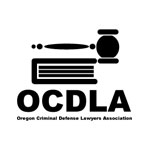DUI Punishments & Consequences
Oregon law prohibits driving under the influence of intoxicants (DUII). Simply by operating a motor vehicle, you impliedly consent to provide a breath or blood sample if requested by an officer.
I am Shelley L. Fuller, a Beaverton DUI lawyer who has years of experience representing individuals facing all types of drunk driving-related offenses. If you have been accused of DWI or DUI, contact my Oregon drunk driving criminal defense law firm online or call us at 503-626-1808. I am committed to defending the rights of those accused of driving under the influence of intoxicants.
Helping You Know And Enforce Your Rights In Driving Under The Influence Cases
Many people do not understand the nuances of DWI laws and situations in which they could be arrested. For clarification, the following are true:
- You don't have to be drunk to be convicted of DUI, DUII or DWI. You need only be "impaired" to a noticeable degree.
- You can be arrested and prosecuted even if your blood alcohol level is lower than .08.
- Intoxication or impairment is not always caused by alcohol. Other substances can cause intoxication or impairment, including prescription medications (such as antidepressants and painkillers), drugs (such as marijuana and methamphetamines) or a combination of alcohol and other controlled substances.
If you are convicted of DUII, you will face serious penalties that may include some of all of the following consequences:
- Loss or suspension of license
- Large fines
- Substance-abuse treatment
- Jail or prison time
- Community service
- Restitution
- Restrictive probationary license programs, including ignition interlock devices
- Increased insurance premiums
Considering the tremendous impact a drunk driving conviction can have on your life, you want to ensure that your attorney is experienced and knowledgeable about all the potential issues and possible defenses.
Beware Of Ethyl Glucuronide (EtG) Testing
When an individual has consumed alcohol or been exposed to a product containing alcohol, the body produces a chemical called Ethyl Glucuronide or EtG. New testing can detect EtG in a person's urine up to 80 hours following consumption or exposure to alcohol.
Unfortunately, the accuracy of EtG testing is not well-established. In fact, the U.S. Department of Health and Human Services, Substance Abuse and Mental Health Services Administration (SAMHSA) has found as follows:
Currently, the use of an EtG test in determining abstinence lacks sufficient proven specificity for use as primary or sole evidence that an individual prohibited from drinking, in a criminal justice or a regulatory compliance context, has truly been drinking. Legal or disciplinary action based solely on a positive EtG is inappropriate and scientifically unsupportable at this time. These tests should currently be considered as potential valuable clinical tools, but their use in the forensic setting is premature."
The problem with EtG testing is that consumption or exposure to medicines and other products containing alcohol may yield a positive test result. These products include:
- Alcohol-based hand sanitizers (such as Purell)
- Cough syrups containing alcohol
- Household cleaning products
- Denatured alcohol
- Mouthwash
- Desserts containing alcohol
- Wine vinegar
- Products containing ethanol
People who have been exposed to alcohol through any of these products could be accused of drinking even though they haven't technically consumed alcohol. Many people are revoked from diversion programs, accused of violating their probation or face revocation of a professional license. In some cases, medical professionals such as doctors and nurses have lost their professional licenses and employment due to EtG results that were a result of incidental exposure and not actual consumption of an alcoholic beverage.
If you have been accused of consuming alcohol based on a positive EtG result, contact my Portland criminal defense law firm or call my office at 503-626-1808.






